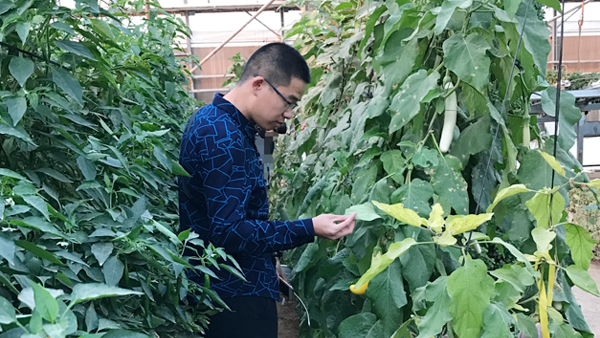Water-soluble fertilizer has the functions of improving fertilizer utilization rate, saving agricultural water, reducing ecological environment pollution, improving crop quality and reducing labor force. However, attention should be paid to fertilization skills when applying water-soluble fertilizer. How to use water-soluble fertilizer effectively? Chef Tu thinks you can refer to the following points.
Water-soluble fertilizer can improve fertilizer utilization rate, save agricultural water, reduce ecological environment pollution, improve crop quality and reduce labor force. However, attention should be paid to fertilization skills when applying it. How to use water-soluble fertilizer has good effect.And? Chef Tu thinks you can refer to the following points:

Avoid direct flushing, and adopt secondary dilution.
Water-soluble fertilizer has higher nutrient content than general compound fertilizer, and its dosage is relatively small. Direct flushing is easy to cause the phenomena of burning seedlings, hurting roots and weakening seedlings. Secondary dilution is not only beneficial to the uniform application of fertilizer, but also can improve the utilization rate of fertilizer.
Small amount of application
Because water-soluble fertilizer is quick-acting and difficult to remain in the soil for a long time, small amount and multiple times is an important fertilization principle, which accords with the characteristics of plant roots continuously absorbing nutrients and reduces leaching loss caused by a large amount of one-time fertilization. Generally, the dosage per mu is at3~6Kg.
Pay attention to nutrient balance.
Water-soluble fertilizer is generally applied by watering, spraying, or mixing it with water, along with irrigation (drip irrigation and sprinkler irrigation). It should be reminded that when drip irrigation is used for fertilization, because of the dense growth and large amount of crop roots, the dependence on the nutrient supply of the soil is reduced, and it is more dependent on the nutrients provided by drip irrigation. If the formula of water-soluble fertilizer is unbalanced, it will affect the growth of crops. In addition, water-soluble fertilizer should never be applied with traditional irrigation methods such as flood irrigation or running water irrigation to avoid fertilizer waste and uneven application.
Combined application
Water-soluble fertilizer is a quick-acting fertilizer, which can only be used as topdressing. Especially in conventional agricultural production, water-soluble fertilizer can't replace other conventional fertilizers. It is necessary to combine basic fertilizer with topdressing fertilizer, organic fertilizer with inorganic fertilizer, water-soluble fertilizer with conventional fertilizer, so as to reduce the cost and give full play to the advantages of various fertilizers.
Try to use it alone or mixed with non-alkaline pesticides.
When vegetables have element deficiency disease or poor root growth, many farmers often use the method of spraying water-soluble fertilizer to alleviate it. Here, it is reminded that water-soluble fertilizer should be used alone or mixed with non-alkaline pesticides as far as possible, so as to avoid the reaction of metal ions to produce precipitation, resulting in fertilizer damage or phytotoxicity of leaves.
Avoid excessive irrigation.
When irrigating with fertilization as the main purpose, it is enough to reach the deep wetting of the root layer. The depth of root layer of different crops varies greatly, so you can dig up the soil at any time with a shovel to know the specific depth of root layer. Excessive irrigation not only wastes water, but also causes nutrients to leach below the root layer, which can't be absorbed by crops and wastes fertilizers. Especially, urea and nitrate nitrogen fertilizer in water-soluble fertilizer (such as potassium nitrate, calcium ammonium nitrate, nitrophosphate fertilizer and water-soluble fertilizer containing nitrate nitrogen) are easily lost with water.
Prevent surface salt accumulation
Or long-term drip irrigation fertilization in greenhouse will cause salt accumulation on the surface and affect root growth. Drip irrigation under plastic film can be used to inhibit salt migration to the surface layer.
Shandong(Province)Tu chefFertilizer Industry Co., Ltd. is a high-tech enterprise introduced by the government, which integrates the research and development, production, sales, foreign technology introduction and import agency of microbial agents, water-soluble fertilizers and fully water-soluble tower compound fertilizers. It is supported by a full set of functional fertilizer products, scientifically nourishes every cycle of crop growth and a variety of high-tech products, and takes care of every link of crop growth with nutrition according to different conditions of different crops, effectively solves the problem of crop nutrient deficiency, and enables crops to grow healthily and obtain higher quality and more output!




